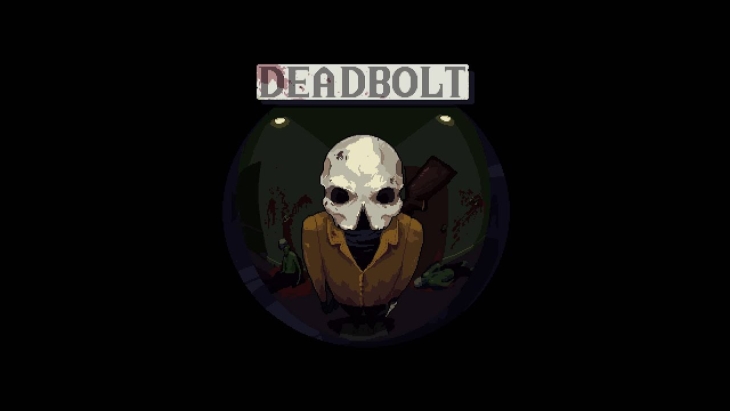
There are plenty of interesting villains in fiction, and plenty of them have their own unique motivations; whether revenge for the death of a loved one, or maybe they’re seeking power to protect what they care about. Maybe they want to make the world a better place or maybe they’re just really cold.
Deadbolt is a game about a reaper employed by the God of Life to struggle against the combined forces of the undead. The story itself is really only to serve as context for the gameplay and by itself it’s fairly uninteresting and forgettable, but I would say that can be looked over because the story isn’t the main focus of Deadbolt, the gameplay is.
This is a review coupled with a supplemental video review. You can watch the video review or read the full review of the game below.
Deadbolt
Publisher: Hopoo Games
Developer: Hopoo Games
Platform: Windows PC (Reviewed) Linux, Mac, PlayStation 4, PlayStation Vita
Release Date: March 14th, 2016 (Windows PC), July 12th (Linux, Mac), February 20th, 2018 (PlayStation 4, PlayStation Vita)
Players: 1
Price: $9.99 USD
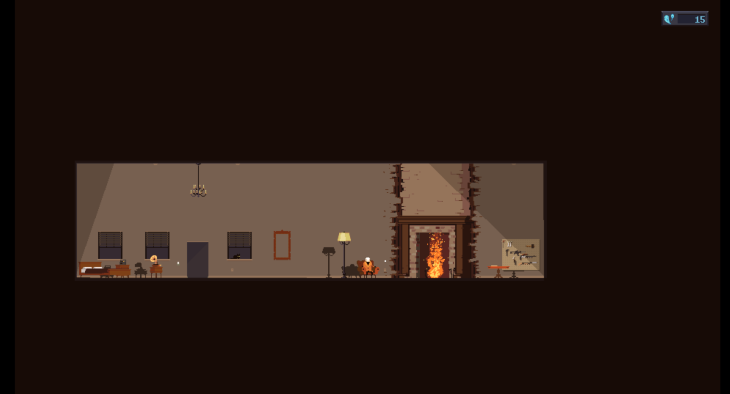
The gameplay itself could be classified as a stealth action game. Each level presents you with a variety of enemies and an objective. Many enemies can take a large amount of punishment before going down, but The Reaper consistently can only take one hit. This forces the player to strategize before tackling each area in a level.
How does the environment factor into the approach? Do you knock on a door to attract an unsuspecting enemy to open it, only for them to be met with a shotgun barrel on the other side? Maybe you can take one enemy down quietly, and use cover in the proceeding firefight to take care of the rest of the enemies in the area.
The vents provide unique opportunities. Maybe this enemy right next to one can be taken out with a melee kill, provided you use the right tool for the job, otherwise they may just take you out instead in the brutal beatdown that ensues.
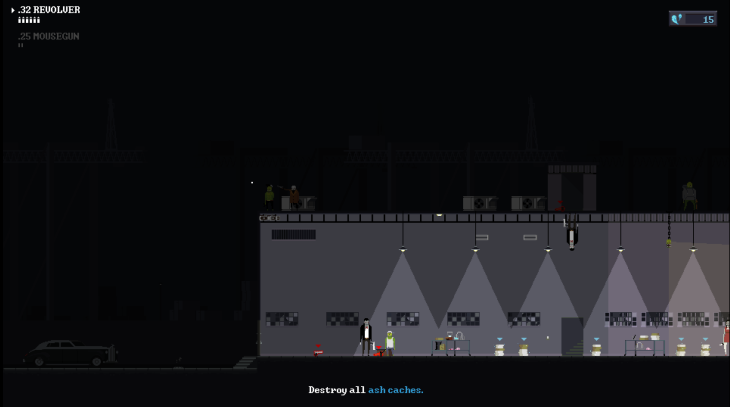
The Ferryman sells a variety of weapons between missions. Which ones you choose to take further factors into what approach you’ll make, even if I don’t think the game is generous enough with its currency to allow you to truly experiment with them all in one playthrough.
These are the decisions that make up the core of Deadbolt‘s gameplay; sneaking through each area, and taking out enemies one by one as the soundtrack blares in the background makes for one of the best stealth experiences since the Arkham series ended. But that doesn’t mean that Deadbolt doesn’t have an Achilles Heel.
I’ve seen better AI in a lot of RPGMaker games. A massive part in what makes stealth games work is the predictability of enemies. In Arkham, the enemy behavior allows you to lure them into traps. They’re always doing something, going somewhere, even when they’re scared of the invisible force lurking just overhead.
Deadbolt does not have this same level of polish. Sure you can knock on a door to lure an enemy to it, and they’ll react accordingly to finding the dead body of a comrade, but when the hunt begins is truly when the AI falls off.
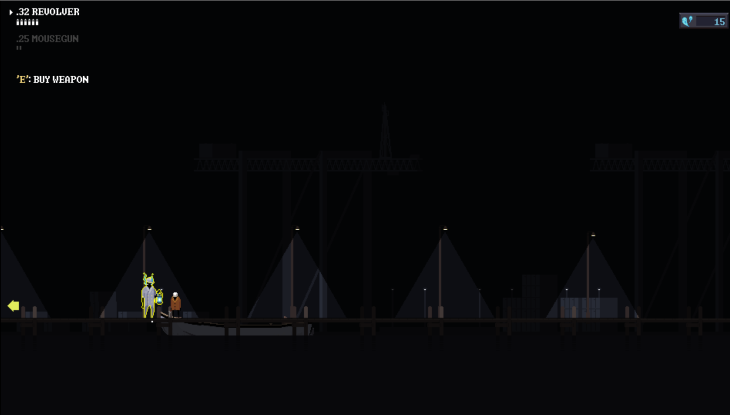
Let’s take for example the Dredged enemy the General, a necromancer who will resurrect enemies you’ve already taken care of. They’re supposed to go towards enemies you’ve already killed to resurrect them, leading to opportunities to set up an ambush. Which would work if he actually walked down the stairs, instead of pacing back and forth on the floor above endlessly.
That is the major downfall of Deadbolt‘s gameplay. The enemies do not search, they’ll stand around, walk in circles in one spot, and once in a blue moon actually begin searching for you.
The fact that they tend to bunch up on top of that, combined with Death’s inability to take more than one hit, leads to some incredibly frustrating encounters. There have been several times where the experience comes crumbling down, and the only path to victory is to reset the level and hope the AI doesn’t place you in a no win situation again.
All the work Hopoo Games put into creating a diverse set of enemy types across a set of four different factions; brought to its knees by the shoddy AI they gave them.
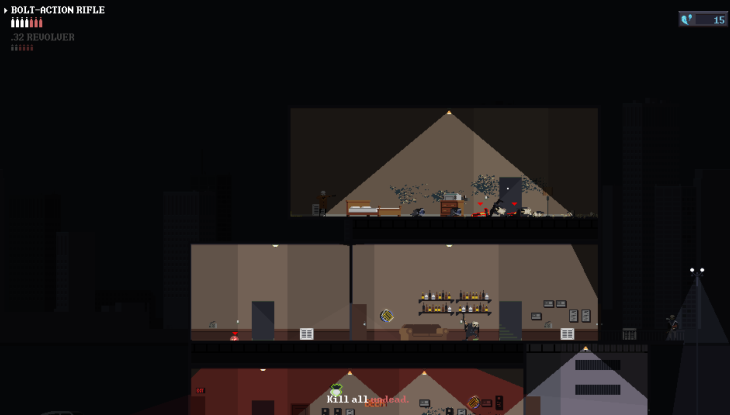
This isn’t the only area where inconsistency can ruin a run through a level, in its last third, the game introduces an enemy type that begins to set mines upon being aggroed. The blast radius is extremely inconsistent, and because Death can’t jump, detonating them is a must to pass by them.
That being said, that last third is where it shines the brightest, as it’s home to Deadbolt‘s most memorable and creative levels. There’s a house full of traps designed by a psychopathic skeleton to deal specifically with you, and a battle with a sniper where stepping into the light and revealing your position results in your instant demise if you don’t react correctly.
These levels are brought to life by it’s art direction, which hits the perfect middle ground when it comes to pixel art. It’s detailed enough to convey the character in it’s characters and environment, but not over complicated to the point where the game becomes a mess to look at.
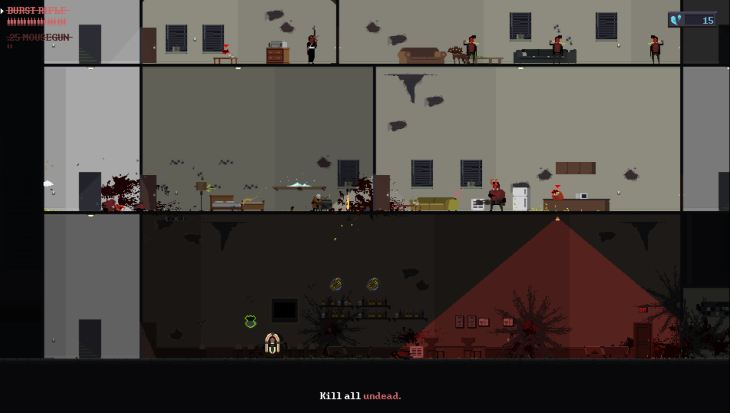
I have to stress how amazing the game’s soundtrack is. It will fade in and out as you go between indoors and outdoors as a nice detail, even if it’s a bit spotty at some points. It truly completes and sells the experience of being the grim reaper lurking in the shadows.
Deadbolt overall is quite rough around the edges. There’s definitely room for improvement, but what’s provided is definitely a solid and enjoyable experience.
Deadbolt was reviewed on Windows PC using a personal copy. You can find additional information about Niche Gamer’s review/ethics policy here.